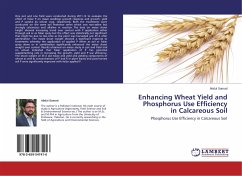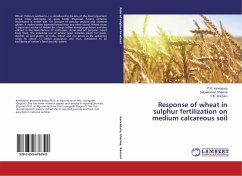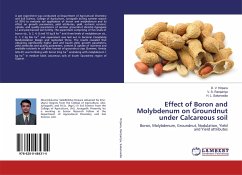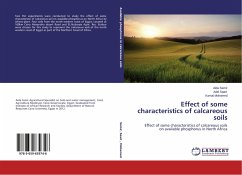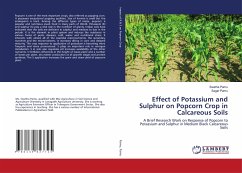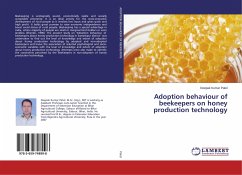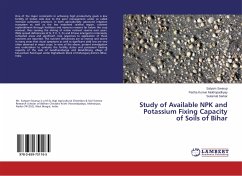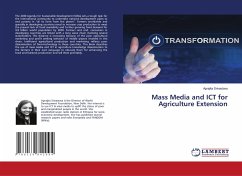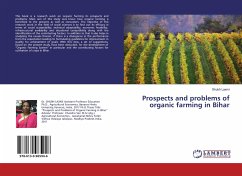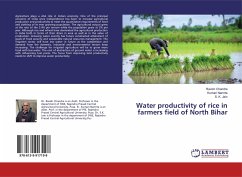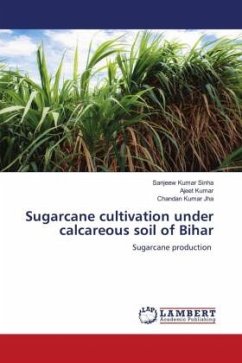
Sugarcane cultivation under calcareous soil of Bihar
Sugarcane production
Versandkostenfrei!
Versandfertig in 6-10 Tagen
40,99 €
inkl. MwSt.

PAYBACK Punkte
20 °P sammeln!
Sugarcane is a heavy nutrient exhaustive and long duration crop. It suffers from nutrient imbalance due to gap between nutrient removal and application. The depleting soil health and crop productivity in the sugarcane area of Bihar are a major concern. The frequent and excessive use of chemical fertilizers have created various problems like deficiency of secondary and micronutrients, decline in crop productivity and increasing environmental pollution. The use of biofertilizers improves soil fertility by fixing atmospheric nitrogen, solubilizing insoluble phosphates, producing plant growth-prom...
Sugarcane is a heavy nutrient exhaustive and long duration crop. It suffers from nutrient imbalance due to gap between nutrient removal and application. The depleting soil health and crop productivity in the sugarcane area of Bihar are a major concern. The frequent and excessive use of chemical fertilizers have created various problems like deficiency of secondary and micronutrients, decline in crop productivity and increasing environmental pollution. The use of biofertilizers improves soil fertility by fixing atmospheric nitrogen, solubilizing insoluble phosphates, producing plant growth-promoting substances in the soil, and promoting nodulation, which increases yield by 46-60%. Azospirillum biofertilizer help in N nutrition which colonize the roots of sugarcane and fix atmospheric nitrogen. Acetobacter is aerobic nitrogen fixing bacteria in roots, stems and leaves of sugarcane plants. Applications of biofertilizer, Pressmud and FYM in mixed condition in furrow enhance the sugarcane yield. An average crop of sugarcane yielding 100 t/ha removes 208 kg of N, 53 kg of P, 280 kg of K, 30 kg of Sulphur, 3.4 kg of iron, 1.2 kg of manganese, 0.6 kg of copper respectively from the soil.



